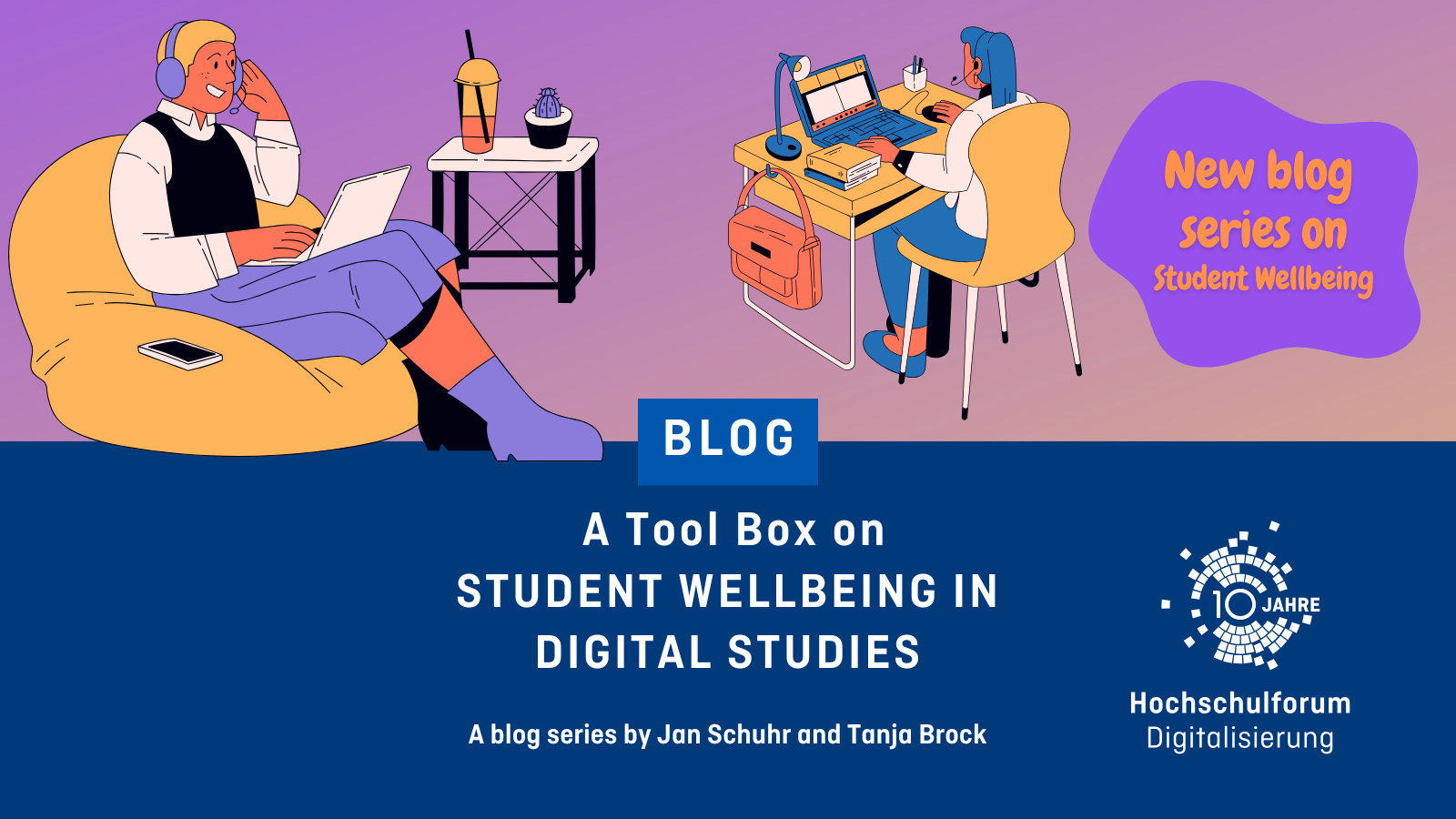A toolbox on “Student wellbeing in digital studies”
A toolbox on “Student wellbeing in digital studies”
28.08.24
How are the mental health of students and digitalization processes at universities connected? What about the support structures for students at universities? And how can online teaching or digitally supported teaching be designed to promote health? Tanja Brock and Jan Schuhr from the University of Applied Sciences for Social Work, Education and Nursing addressed these and similar questions in the research and practice development project enhance (Mental Health in the Context of Digitalization Processes at Universities), a joint project with the University of Leipzig Medical Center, which is funded by the Saxon State Ministry of Science, Culture and Tourism.
As part of the project, they spoke to students, lecturers and university health stakeholders about their personal experiences, needs, ideas and perspectives regarding health-promoting universities. They have summarized important findings in the form of a toolbox in four blog posts. The tools and checklists contained therein can be used for your own everyday university practice.
The toolbox begins with the topic of the (in)visibility of mental health at universities and the challenges of public discussion, information and awareness-raising with regard to support structures for students. The blog post is supplemented by a practical step-by-step guide on how to carry out and plan a visibility campaign in the university context with the participation of students. The three other blog posts and tools contain recommendations for action on the topic of student wellbeing, particularly in the digital teaching context. They deal with tips and tricks for implementing diversity-sensitive digital teaching and ways of shaping relationships in the digital space, for example through a social check-in, as well as complex cases and ways of dealing with them.
Fortunately, toolboxes, guidelines and orientation papers on the topic of mental health in (digital) university teaching already exist in many other places and have been developed primarily in the course of the contact restrictions and the switch to online teaching during the coronavirus pandemic. For example, toolboxes for the diversity-sensitive design of digital teaching are available at several universities and are also made accessible to the public. Examples include the Toolbox of the FU Berlinthe “Handreichung für eine diversitätssensible Lehre der Goethe Universität Frankfurt” or the brochure for university staff at the University of Würzburg on studying with mental illnesses and problems.
The special feature of the toolbox published here is that the respective blog posts and tools were developed and compiled on the basis of research and through participatory design formats with students. The authors have attempted to incorporate the experiences and impressions of the students by Surveys, Interview surveys and workshops over the period from summer semester 2022 to summer semester 2024 to be incorporated into the recommendations for action. The respective tools are designed to work across universities and disciplines and are not limited to specific circumstances at a university, for example in the form of a specific digital student administration platform. The blog series invites lecturers and university designers to take a closer look at the mental health of students in digital studies and to try out tools to make their teaching more health-promoting and appreciative.
Author:internal directory

Jan Schuhr (er/ihm), sociologist M.A. at the Center for Research, Continuing Education and Counseling at ehs Dresden. Research assistant in the ENHANCE project (Mental Health in the context of digitization processes at universities) and lecturer (obA) at the University of Applied Sciences for Social Work, Education and Nursing Dresden. Current research interests include questions of health, organizational and digitalization sociology as well as empirical research strategies in the consideration of social inequalities

Tanja Brock (she/he), cultural and media scientist M.A.; research assistant at the Center for Research, Continuing Education and Counseling at ehs Dresden, in the projects ENHANCE (Mental Health in the Context of Digitalization Processes at Universities) and Smart Youth Work in Saxony. Tanja Brock is doing her doctorate in the DFG Research Training Group “Consequences of Social Assistance” at the University of Siegen on the digital media practices of recipients of open child and youth work.
This blog series is organized in cooperation with the HFD think tank “Well-Being in the digital age at universities” under the direction of Tina Basner. Feel free to share your ideas with us and the HFD community via the comment function or contact us by e-mail at tina.basner@che.de .


 Vera Lenz-Kesekamp
Vera Lenz-Kesekamp 
 Felix Averbeck
Felix Averbeck 
 Lena Nedwed
Lena Nedwed 